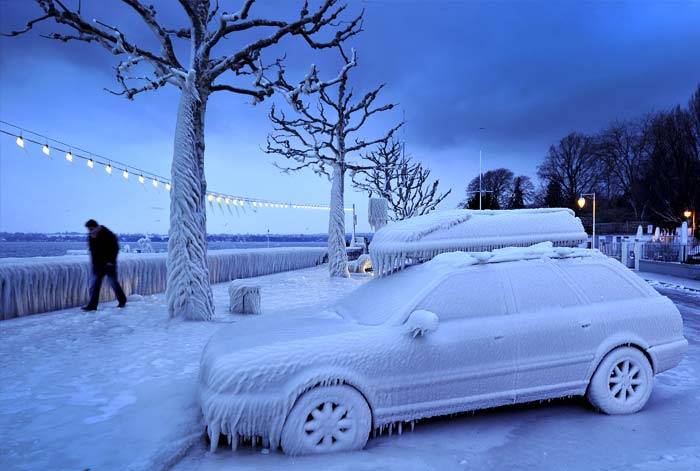Europe is not out of climatic changes effects. Winter may be late but they won’t be never. Just like rest of the world Europeans have to wait to see the height of winter. Central and eastern Europe are located at specifically highly altitudes and home to the most cold wave related casualties.
A cold snap gripping Europe has killed 10 more people in Poland, stranded thousands in snow-covered Turkey and brought fresh misery for both migrants and the homeless.
Double-digit sub-zero temperatures have claimed more than 30 lives over the past few days, many of them migrants or homeless people found frozen to death.
Sunday was the deadliest day this winter for cold-related deaths in Poland, where temperatures have plunged to below minus 20 degrees Celsius (minus 4 Fahrenheit) in some regions.
"Yesterday, 10 people died of cold," Poland’s centre for national security (RCB) said Monday in a statement, adding that "the number of hypothermia victims has reached 65," since November 1.
Heavy snowfall in Turkey’s main city Istanbul paralysed traffic for a third straight day with the Bosphorus Strait closed to ships and hundreds of flights cancelled.
Ferry services between the European and Asian sides of the city were scrapped and schools across the city closed.
Flagship carrier Turkish Airlines said only 292 departures from Istanbul’s Ataturk Airport were expected on Monday.
On a normal day, the airport can accommodate over 1,500 landings and take-offs.
Turkish Airlines CEO Bilal Eksi said more than 600 flights had been cancelled on Sunday and over 10,000 travellers unable to reach Istanbul had been put up in hotels worldwide.
A 68-year-old homeless man was found frozen to death in the Macedonian capital Skopje while in Serbia, the southeastern town of Sjenica saw the mercury plunge to -33 degrees Celsius.
Traffic on the Danube and Sava rivers was halted in Serbia. Scores of migrants in the capital Belgrade took shelter in a warehouse near the railway station, spurning shelters provided by the government for fear they would be deported back to their countries.


